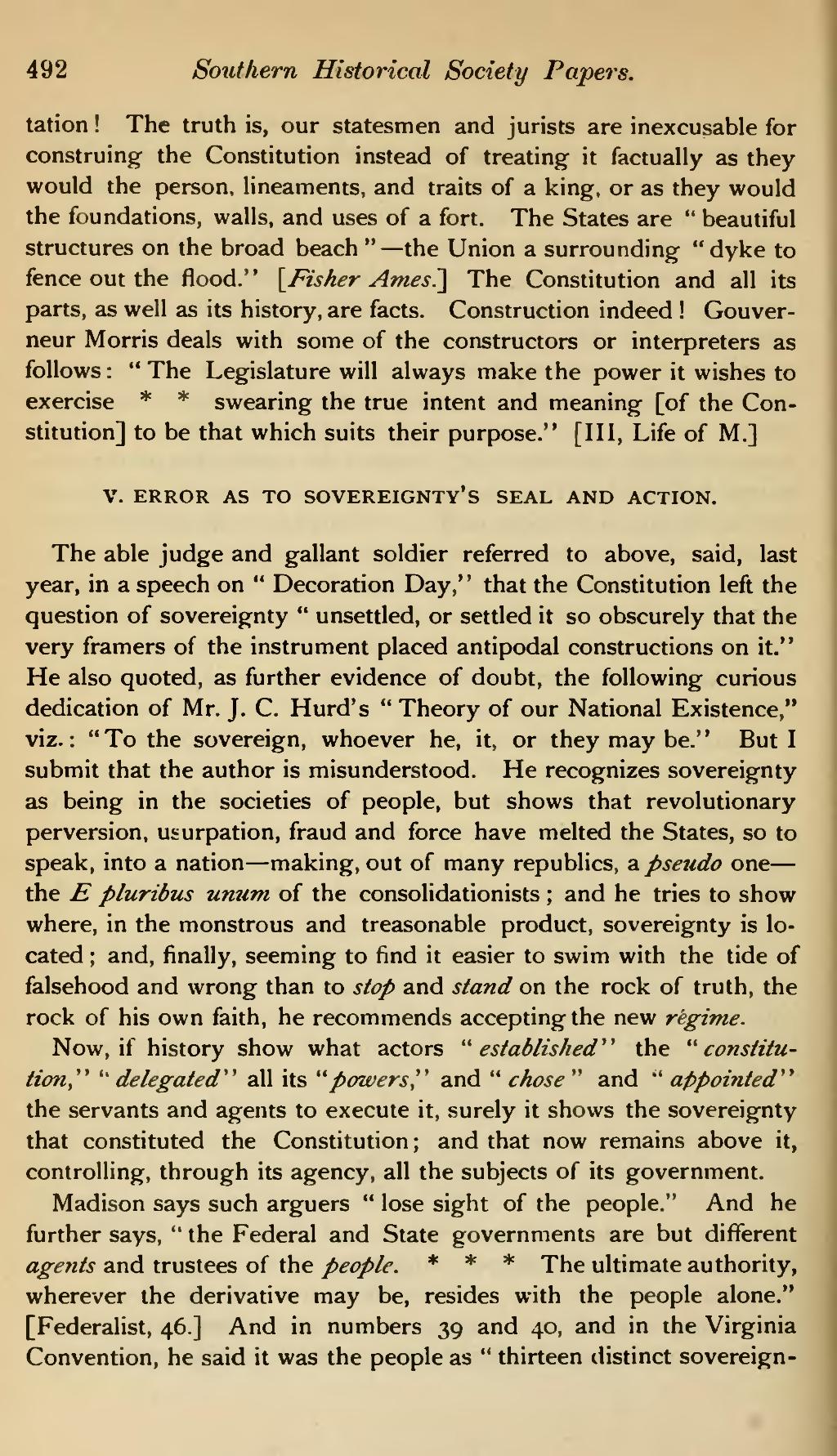tation! The truth is, our statesmen and jurists are inexcusable for construing the Constitution instead of treating it factually as they would the person, lineaments, and traits of a king, or as they would the foundations, walls, and uses of a fort. The States are " beautiful structures on the broad beach" — the Union a surrounding "dyke to fence out the flood." [Fisher Ames] The Constitution and all its parts, as well as its history, are facts. Construction indeed! Gouverneur Morris deals with some of the constructors or interpreters as follows: "The Legislature will always make the power it wishes to exercise * * swearing the true intent and meaning [of the Constitution] to be that which suits their purpose." [III, Life of M.]
V. ERROR AS TO SOVEREIGNTY'S SEAL AND ACTION.
The able judge and gallant soldier referred to above, said, last year, in a speech on "Decoration Day," that the Constitution left the question of sovereignty "unsettled, or settled it so obscurely that the very framers of the instrument placed antipodal constructions on it." He also quoted, as further evidence of doubt, the following curious dedication of Mr. J. C. Hurd's "Theory of our National Existence," viz.: "To the sovereign, whoever he, it, or they may be." But I submit that the author is misunderstood. He recognizes sovereignty as being in the societies of people, but shows that revolutionary perversion, usurpation, fraud and force have melted the States, so to speak, into a nation — making, out of many republics, a pseudo one — the E pluribus unum of the consolidationists ; and he tries to show where, in the monstrous and treasonable product, sovereignty is located ; and, finally, seeming to find it easier to swim with the tide of falsehood and wrong than to stop and stand on the rock of truth, the rock of his own faith, he recommends accepting the new regime.
Now, if history show what actors "established" the "constitution," "delegated" all its "powers" an "chose" and "appointed" the servants and agents to execute it, surely it shows the sovereignty that constituted the Constitution; and that now remains above it, controlling, through its agency, all the subjects of its government.
Madison says such arguers "lose sight of the people." And he further says, "the Federal and State governments are but different agents and trustees of the people. * * * The ultimate authority, wherever the derivative may be, resides with the people alone." [Federalist, 46.] And in numbers 39 and 40, and in the Virginia Convention, he said it was the people as " thirteen distinct sovereign-
